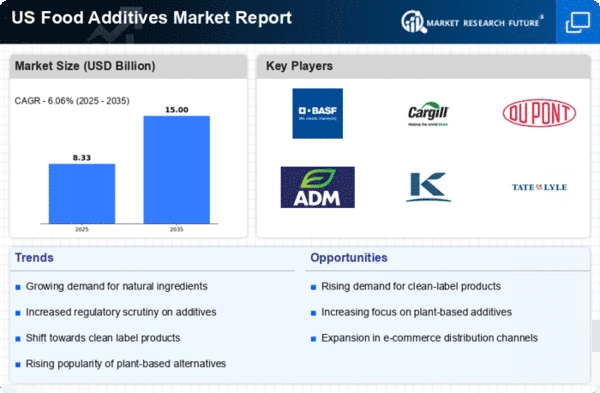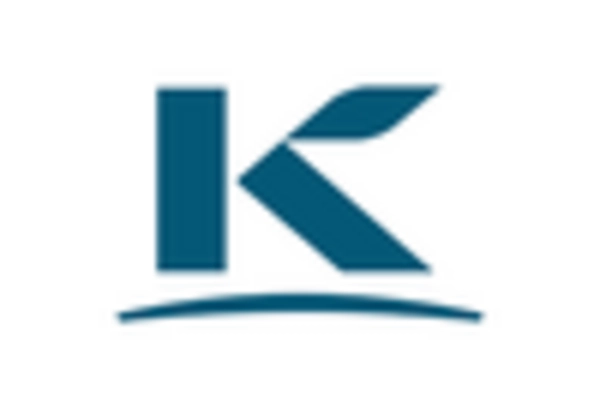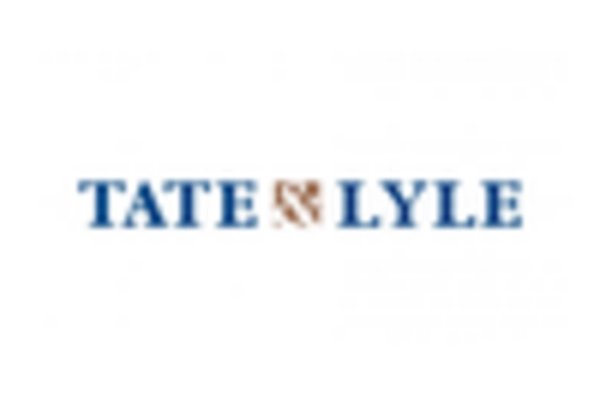Sustainability Initiatives
Sustainability initiatives are becoming a crucial driver in the food additives market, as both consumers and manufacturers prioritize environmentally friendly practices. The push for sustainable sourcing of ingredients is influencing the types of additives used in food products. Companies are increasingly adopting practices that reduce their carbon footprint and promote eco-friendly production methods. This trend is reflected in the growing market for plant-based additives, which is expected to expand significantly in the coming years. As sustainability becomes a core value for consumers, the food additives market is likely to see a shift towards more sustainable options, impacting product formulations and sourcing strategies.
Rising Health Consciousness
The food additives market is experiencing a notable shift driven by increasing health consciousness among consumers. As individuals become more aware of the impact of food on their health, there is a growing demand for additives that enhance nutritional value without compromising safety. This trend is reflected in the market, where the demand for natural and organic additives is on the rise. According to recent data, the market for natural food additives is projected to grow at a CAGR of approximately 6.5% over the next five years. This shift towards healthier options is likely to reshape the food additives market, as manufacturers adapt their product lines to meet consumer preferences for clean labels and transparency.
Innovation in Food Processing
Innovation in food processing technologies is significantly influencing the food additives market. Advances in processing techniques, such as high-pressure processing and cold plasma technology, are enabling the development of new additives that improve food preservation and quality. These innovations not only enhance the shelf life of products but also maintain their nutritional integrity. The market is projected to reach $50 billion by 2027, with a substantial portion attributed to these technological advancements. As food manufacturers seek to improve product quality and safety, the demand for innovative additives is expected to rise, further driving growth in the food additives market.
Consumer Demand for Clean Labels
The trend towards clean labels is reshaping the food additives market, as consumers increasingly prefer products with minimal and recognizable ingredients. This demand for transparency is prompting manufacturers to reformulate their products, often replacing synthetic additives with natural alternatives. A survey indicated that approximately 70% of consumers are willing to pay more for products with clean labels. This shift is likely to lead to a significant transformation in the food additives market, as companies strive to align their offerings with consumer expectations. The emphasis on clean labels is expected to drive innovation and create opportunities for new product development in the food additives market.
Regulatory Compliance and Safety Standards
Regulatory compliance and safety standards play a pivotal role in shaping the food additives market. As food safety regulations become more stringent, manufacturers are compelled to ensure that their additives meet these requirements. This has led to increased investment in research and development to create safer and more effective additives. The food additives market is projected to grow as companies adapt to these regulations, with an estimated increase of 4% annually over the next five years. Compliance with safety standards not only protects consumers but also enhances brand reputation, making it a critical driver in the food additives market.
















